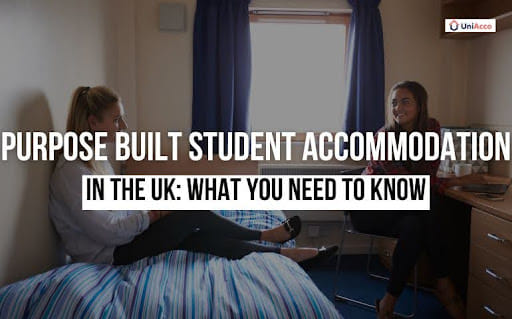It can be both thrilling and utterly daunting to be in a foreign country for the first few days. You’ll still be tired, but you’ll need to do some important things. Your new school might have very different standards from your school back home – and based on the environment you’re used to, that may be one of the hardest changes you may have to make. Making friends is easier said than done often, but meeting new people from around the world and forming new bonds with them is one of the most rewarding aspects of studying abroad. These are not things your education loan covers.
What is Culture Shock?
The idea of studying abroad is an exciting adventure at first, especially when you are still planning where and what to study. But many international students have a culture adjustment phase after arriving on campus that challenges them and pushes them to develop. That’s not easy sometimes. The cultural shock faced by foreign students can occur in various ways: many international students struggle with independent responsibilities, particularly in a different country. You need to make sure things your education loan covers. During class, some students have trouble answering hard questions in English or are not used to group work with vocal classmates. Some foreign students can not find the food that they want or are afraid of telling their classmates the wrong thing.
Cultural shock for many students explains the discomfort they feel when something is different and distinct. Dealing with shock in culture begins with becoming mindful of how it makes you feel.
Here are some popular Culture Shock symptoms:
- Always looking for help
- Homesickness which is not going away
- Preferring always to be isolated
- The feeling of being lost
- Disorders of sleeping and eating
- Trouble in concentrating
- Wrath against other cultures
What Are the Stages of Culture Shock?
Here are the four stages and how each of them may influence international students:
Honeymoon phase: It’s still all fresh and exciting. International students feel enthusiastic about their negative feelings and pay little to no attention.
Crisis phase: All this newness begins to feel daunting. International students feel like they might never fit in.
Recovery phase: Foreign students start to feel better after meeting a few individuals, settling into classes, and developing a routine.
Adjustment stage: Foreign students begin to recognize and appreciate the cultural differences they face at this stage, and things begin to feel natural.
Know, these are stages, and one does not contribute to the next. It may take a few crisis phases for many foreign students before hitting the adjustment period. It is important to know when and why your symptoms will affect you and the helpful methods you can attempt to understand why you experience culture shock.
International students may experience culture shock at school or with friends. You can sense it in a meeting with a teacher’s assistant or at the store talking to a cashier. It can be harder to handle to encounter culture shock in the classroom because there is the additional burden of having good grades. When your ability to speak English or adapt to a new style of learning depends on how well you do academically, it is easy to feel frustrated. Make a list of things your education loan covers.
Here are just a few ways that you can make friends abroad quickly!
Realize that change takes time
Homesickness and feeling out of place are normal. Within the first weeks and months of school, all students undergo a period of adjustment. Be gentle with yourself and know it’s a process. You’re going to be curious by cultural nuances and fascinated, but there will still be moments when you’re irritated or puzzled. Set targets for yourself, such as sharing with loved ones back home one new item every week or beginning a new hobby that is not practical back home.
Reflect on the positive
It can be easy to dwell on what is “missing,” such as common meals and traditions from back home. However, comparisons won’t really help you fit in. Focus on the good stuff about you instead. Remember that the reason you decided to study abroad was to explore and learn new knowledge. Write down fascinating or enjoyable discoveries and add them all year round to your list. In a diary, a blog, or newspaper, you could compose your list or even type a short message on your phone.
Understand your academic expectations
You are not only transitioning to a new world but also learning how to navigate a different academic framework. This is time-intensive. Understanding expectations will reduce schoolwork anxiety. Discuss what is expected at your university with your teachers, mentors, and colleagues. This will soothe your nerves and help you appropriately approach your courses.
Attend the Orientation Programme
It is also your first face-to-face contact with people at your institution to go to orientation abroad, and it is important that you go for details. But it’s a great way of making friends, too. You’ll immediately be surrounded by hundreds of students, just as bored and overwhelmed as you are, by coming to this normally obligatory case. And you can bet that they want to bond over it with you.
Do not liken yourself to someone.
When learning how to cope with transitions, try not to compare yourself to others. Each pupil, even though their home is closer to your university, is different and adapts at their own pace. Do activities that make you a little uncomfortable, like sampling an exotic food or practicing English with a native speaker, but you don’t want to overwhelm yourself. Only when you step outside of your comfort zone, do you expand.
Figure out ways to relieve tension
It can be stressful to adapt to changes at university. When discovering your new home, exercise will help you work off nervous energy. Meditation or yoga might help you relax. It will help you to conquer shifts by pursuing new hobbies and meeting new people.
Remain open-minded
Consider looking at things differently. Consider how their history and community affect their actions if a fellow student or professor behaves differently than you would expect. Do the same for them, much as you would like your other peers to accept and appreciate the differences.
Get into a Student Club
If it’s an intramural sports club, a sorority, or a knitting circle, a perfect way to encounter people of common passions like you is to join some form of a student group. And don’t feel guilty about going alone – people like to see other people in clubs as well.
Get a new roommate
You do not have a preference in your living arrangement depending on your situation – but consider a roommate if you do. And if you already have a roommate, then take advantage of it. Go to the orientation together, cook a meal together, whatever – they will be able to introduce you to other people even though you don’t really hit it off.
Final Thoughts
Studying abroad will bring lots of ups and downs. It could be a simple short-term option to disappear from the mainstream and just speak to people from your home country – but it’s not feasible or even realistic for most people. You’re here to learn, and you’re going to be pulled outside. Take advantage of it and know that it is possible that any pain or irritation you have will pass. Know things your education loan covers!















0 Comments